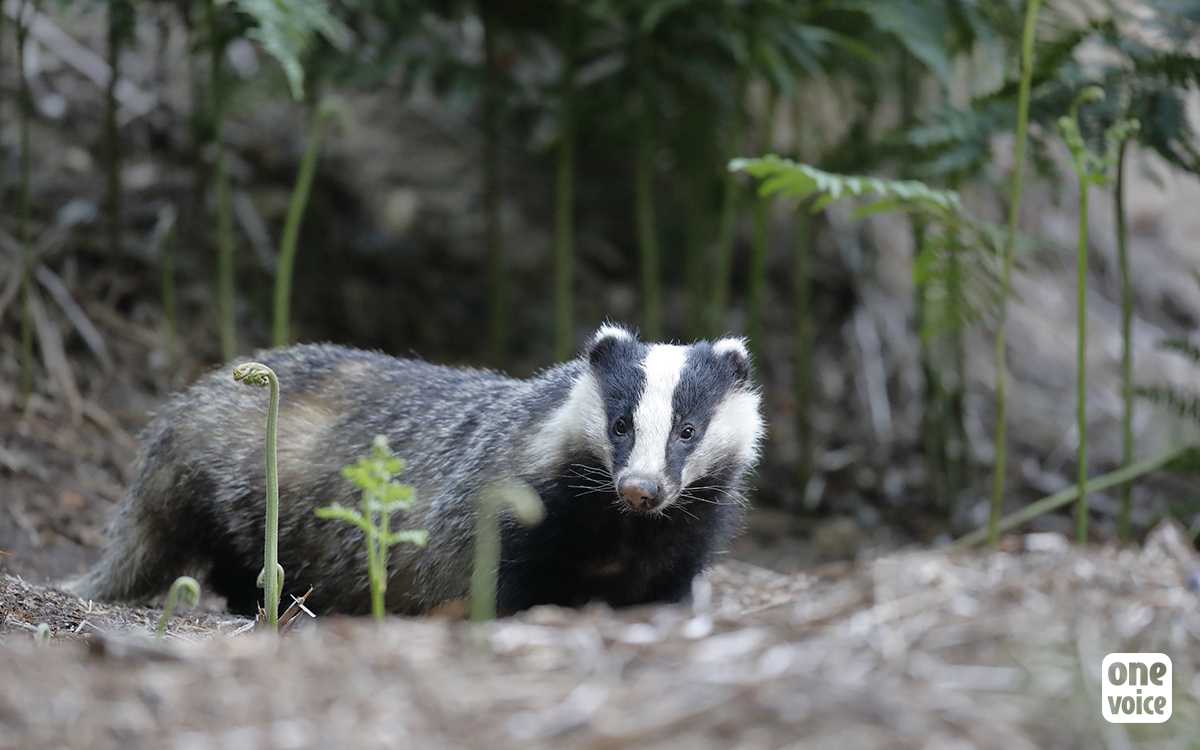

No, Bovine Tuberculosis does not spread more when we spare badgers’ lives
While it is true that badgers feature among wild animals that are susceptible to being a host for Bovine Tuberculosis, incidentally in the same way as wild boar or deer for example, it is indeed a disease which originates from cattle herds. Therefore, when farmers and hunters claim in the media that sparing the lives of badgers is the cause of the disease spreading, and that the withdrawal of the decree that we criticised contributes to it, we can only counter them with the facts. We cannot let them say whatever they like to the public and trick them with their deceptive arguments.
Digging out: a dangerous hunt for dogs who can catch diseases
Underground hunting with hounds is a dangerous practice in terms of Bovine Tuberculosis because it puts hunting dogs in contact with badgers and with tunnels where badger urine can be found, which increases the risk of Tuberculosis spreading. Incidentally, this is the reason for the ministerial ruling of 7 December 2016 which orders that, in areas at risk, the Prefect can forbid the practice of underground hunting with hounds for all species for which hunting is permitted, owing to the risk of contamination for the teams of dogs. The Prefect knows this all the more since he actually had it banned in one part of this area precisely for that reason!
It is therefore completely contradictory and counter-productive to practice digging out to fight against Bovine Tuberculosis! We have highlighted this in the plea that we won against the Prefect of Lot-et-Garonne’s decree.
Divide and rule: when hunters make a game out of Bovine Tuberculosis
Unfortunately, killing badgers remains permitted from September to mid-January, in particular for hunting with guns. Now, many scientific studies have shown that indistinguishable badger culling results in an increase of Tuberculosis in bovines and the risk of transmission into adjoining areas owing to spreading machinery and the social and territorial reorganisation of surviving individuals.
The French Agency for Food, Environmental and Occupational Health & Safety (ANSES) has produced two reports on this issue, in 2011 and 2019, in which they consider that culling is not justified as a preventative measure in badger populations that are not yet affected by Tuberculosis. Indeed, this seems logical: you don’t cull individuals in good health to avoid transmitting a disease!
The withdrawal of the decree that we contested does not mean the disease will spread!
The diggers actually complained about the cancellation of their favourite summer hobby for completely disingenuous reasons. On one hand, they pinned the blame of bovine herd culling – destined for the slaughterhouse by farmers, need I remind you? – on badgers and on us, their advocates, while it is these farms that are the source of the transmission of the disease to wild animals.
On the other hand, the hunt isn’t used to fighting against the spread of Bovine Tuberculosis. Specific administrative demolition decrees have been issued for this within the framework of the Sylvatub system. The withdrawal of the decree that we obtained changes nothing on this point.
Equally, concerning the damage attributable to badgers and duly observed in farming, it is possible to put alternative (repulsive: filling in the setts so that the badgers “move out”, as the case may be) solutions in place. And the Prefect, unfortunately, has the possibility year-round and every time he deems it necessary to order these administrative badger “demolitions”. Even then, the withdrawal of the Lot-et Garonne Prefect’s decree that we contested doesn’t change anything.
Therefore, badger culling largely remains possible (something which we deplore); the misleading argument of hunter-farmers doesn’t hold up for a minute. We have obtained the withdrawal of the decree because the Prefect hadn’t carried out a public consultation beforehand. But he also allows the practise of a hobby that either way isn’t linked to the presence of damage or to a health risk.
Translated from the French by Joely Justice